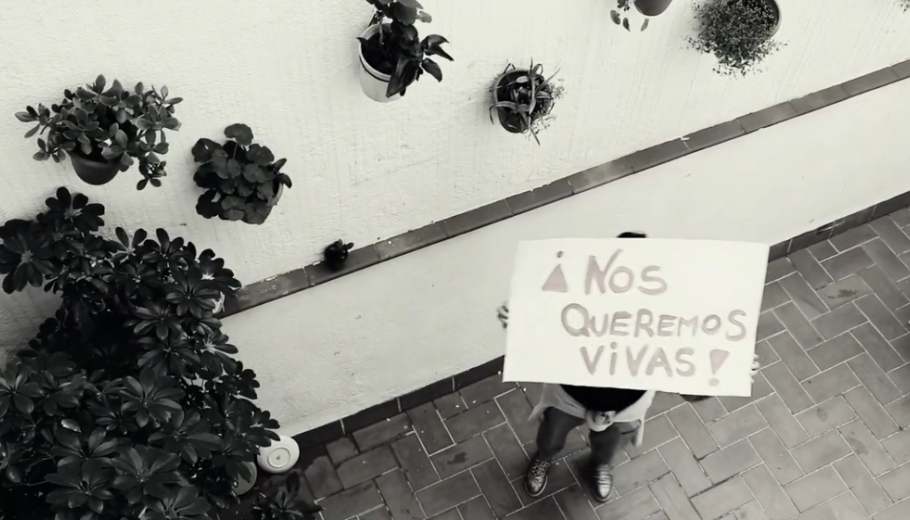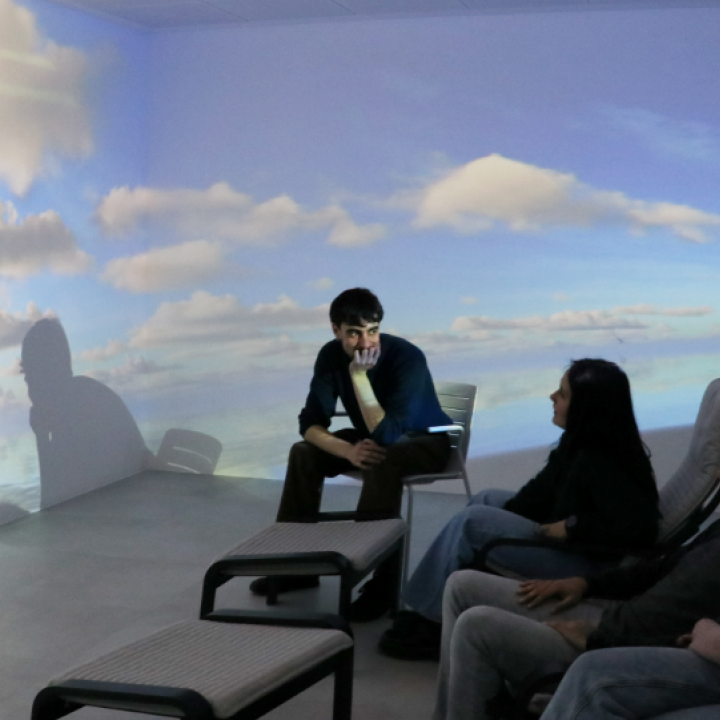In this space, 18 families who are victims of gender-based violence live, who to the rhythm of the song “Vivir sin miedo” by Vivir Quintana have demanded justice for each of the victims this 25-N.
Gender-based violence is a scourge present all over the planet. According to a recent report by UN Women, with data from 2022, 48,800 women and girls were murdered by partners or family members that year; 736 million women, one in three, suffered sexual assault by partners; and more than 640 million women and girls over the age of 15, 21% of the world's female population, were victims of gender-based violence.
In Spain, assaults against women are increasing according to official data. In 2022, 50 women were murdered by their partners; while in 2023, there were 58; and from January to October, 40, of which 12 were in Catalonia, the autonomous community where the most murders have been committed, according to the Ministry of Equality. The increase in rapes is also alarming. From January to June, 2,465 rapes have been reported, 14 per day, which represents an increase of 117.6% compared to the same period in 2021 when 955 occurred, according to data from the Ministry of the Interior.
Unfortunately, a reality that the 18 families, women with their children, who live in the Marialar Reception Center, know very well, who this 25-N, International Day Against Violence Against Women, sing to demand justice for each of the victims. The song they perform is “Vivir sin miedo” by Mexican singer-songwriter Vivir Quintana. This piece denounces the high number of femicides around the world while demanding justice for each of the victims. It also has a message of sisterhood among women through slogans such as “If they touch one, we all respond” or “We want you to live”.
The video, produced by the people treated and workers at this center managed by Suara Cooperativa and Càritas Barcelona, also tells the story of a victim who enters Marialar alone and is overwhelmed by both the situation she is experiencing and all the bureaucracy. In this space, she finds the solidarity of other women who have suffered situations similar to hers or of the workers while also forging new bonds as a result of living in a community. Finally, she leaves to applause, but she is no longer alone because she has the new friends she has found in Marialar.
Empowering women
As a cooperative, Suara has a horizontal and democratic governance model where workers actively participate in decision-making. We also have inter-cooperation and collaboration as our axis of action. These values also permeate our support model, where the people we serve are the true protagonists of their life projects, since they are the ones who decide on the things that affect them in their day-to-day lives and, in this way, they are empowered. In addition, in residential services such as Marialar, community life and collaboration between.
This video, in video clip format, is the result of a co-creation process in which the people served and the workers have participated. First, they chose the song, which one of the people served puts to music with an organ and a worker with a guitar. The rest of the women and children at the center give voice to the piece. They have also jointly thought up the scenes in the video that they themselves represent. With this whole process, the aim has not only been to strengthen the bonds between the people who are in this space, but also to empower the people who accompany them.
This residential center for victims of gender-based violence and their families is not the only one of this nature that Suara Cooperativa manages, which also has other services to offer outpatient care; information and advice, as well as individual, group psychological support or mutual aid.
At Suara Cooperativa we also have a protocol on how to act in cases of gender-based violence, through which we also make ourselves available to victims in case they need any kind of care or support.





